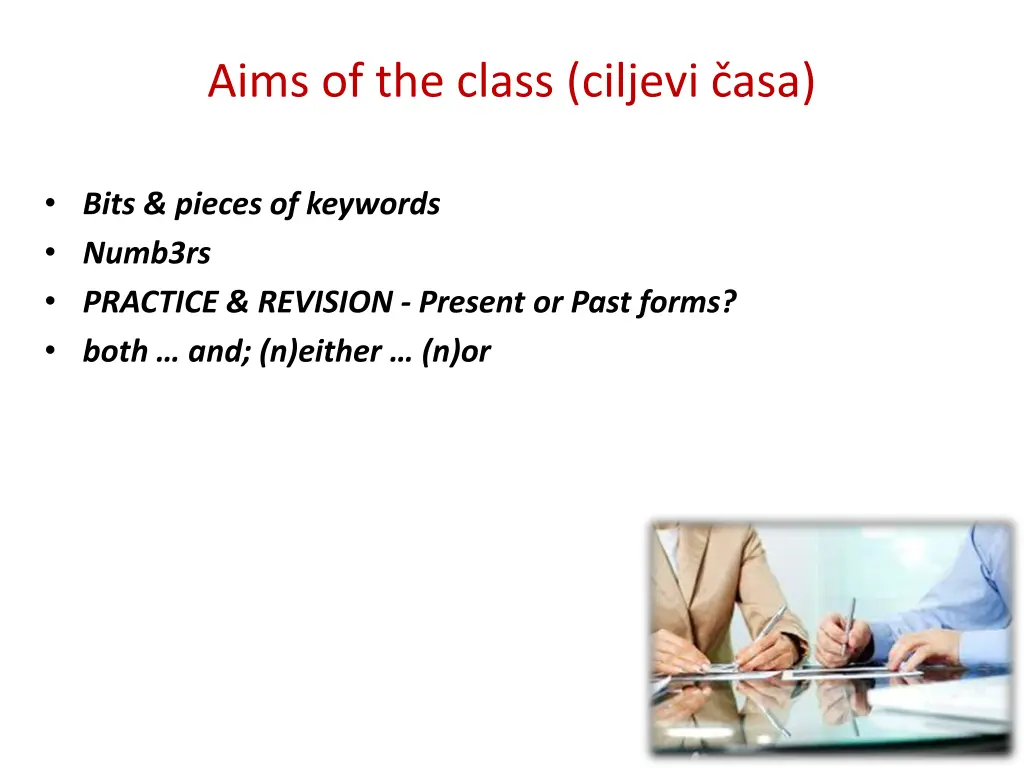
Learning Financial Terms and Grammar in Business English
Explore the aims of the class, keywords translation, interest rates analysis, offshore banking reflections, pros and cons of offshore accounts, number practice, and grammar revision in a business English context. Practice and reflect on present and past forms.
Download Presentation

Please find below an Image/Link to download the presentation.
The content on the website is provided AS IS for your information and personal use only. It may not be sold, licensed, or shared on other websites without obtaining consent from the author. If you encounter any issues during the download, it is possible that the publisher has removed the file from their server.
You are allowed to download the files provided on this website for personal or commercial use, subject to the condition that they are used lawfully. All files are the property of their respective owners.
The content on the website is provided AS IS for your information and personal use only. It may not be sold, licensed, or shared on other websites without obtaining consent from the author.
E N D
Presentation Transcript
Aims of the class (ciljevi asa) Bits & pieces of keywords Numb3rs PRACTICE & REVISION - Present or Past forms? both and; (n)either (n)or
Bits & pieces of keywords Word translation into Serbian turnover turnover = obrt interest rate = kamatna stopa interest rate offshore bank account offshore bank account = of or bankovni ra uni u inostranstvu, obi no na egzoti nim destinacijama (u zemlji razli itoj od rezidentne zemlje)
Interest rates True or false: Stable and low inflation and interest rates are an economic good thing. Circle the correct answers: TRUE! Low interest rates/ high interest rates help to control inflation/small banks.
Offshore bank accounts Do you think offshore accounts are a good idea? Why/why not? Possible questions to reflect on: Where is that money from? What is it for?
The pros and cons of an offshore account pros of offshore accounts: range of currency (dollar, yen ) lower taxes your account is secure confidentiality = tajnost (podataka) cons of offshore accounts: tax fraud/tax evasion money laundering
Numb3rs Numb3rs 1st the first Tuesday, 13 January 2015 the thirteenth of January two thousand and fifteen 1896 eighteen ninety six 1, 896 one thousand eight hundred and ninety six 5.673 five pointsix seven three 0.3 (nought) point three, 0.05 (nought) point oh five 1/5 a fifth 3/8 three eights a quarter, one quarter; 5% five percent NOT five percents
PRACTICE & REVISION - Present and Past forms has 1. 2. Over half of Mexico s land _________ (have) very little rainfall each year. Over one and a half million US visitors _________ (go) to Mexico each year. Tourism _____________________ (grow) very quickly in Mexico. go is growing 3. study 1. 2. Archaeologists _______________ (study) the Mayan civilisation. Mexico_________ (receive) over 20 million tourists last year. received
96. zadatak, str. 110, Engleski poslovni jezik PRACTICE & REVISION - Present Perfect or Past Simple? moved was 1. Tom (move) _____________________ to this town in 1994. 2. My friend (be) _______________ in Canada two years ago. 3. Last week, Mary and Paul ____________(go) to the cinema. 4. ___________________ (they/ spend) their holiday in New Zealand last year? went Did they spend
both and; (n)either (n)or join nouns, verbs or other kinds of expressions She plays both tennis and badminton. Their kid s name is either James or Charlie I forget which. We can either eat in or go out to a restaurant. That s neither interesting nor true.
both and; (n)either (n)or Join the sentences with both and; either or, neither nor 1. He doesn t speak English. He doesn t speak French. He speaks neither English nor French. 2. It was Tuesday. It was Wednesday. I m not sure. It was either Tuesday or Wednesday. 3. I don t like her. I don t dislike her. I neither like nor dislike her. 4. You are not right. You are not wrong. You re neither right nor wrong. 5. I admire him. I distrust him. I both admire and distrust him. 6. Paul is on holiday. Sally is on holiday. Both Paul and Sally are on holiday. 7. The play was funny. The play was shocking. The play was both funny and shocking.
THANK YOU FOR YOUR ATTENTION! See you next class!
